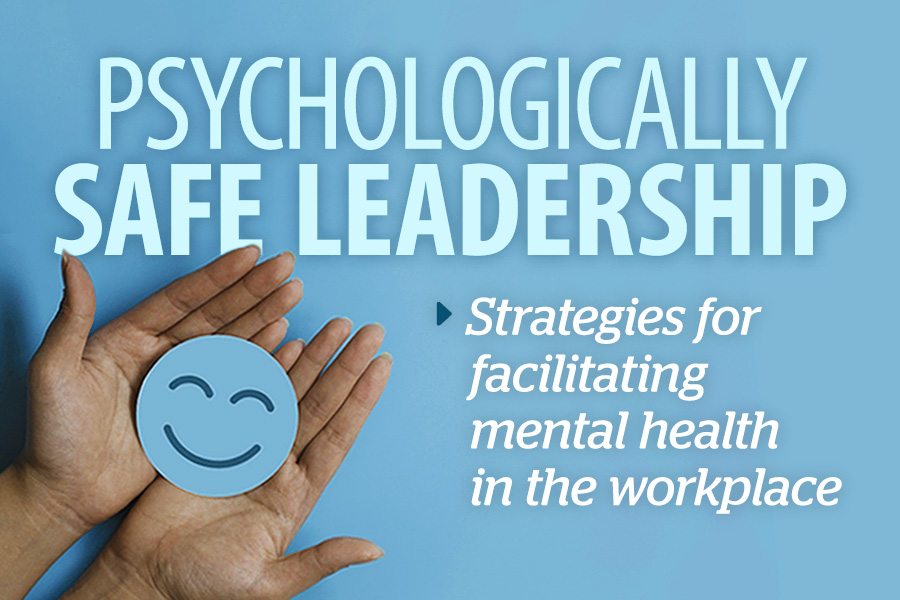
Ways that organizational factors can lead to conflict
By Bill Howatt and Troy Winters
Many Canadians describe having too much to do, and not enough time to do it in, as their most significant workplace stressor

EDITOR’S NOTE: ‘Psychologically Safe Leadership: Strategies for facilitating mental health in the workplace’ is a web series in partnership with Dr. Bill Howatt of Howatt HR Consulting in Ottawa, and Troy Winters, senior health and safety officer at the Canadian Union of Public Employees (CUPE) in Ottawa.
There is zero chance a leader will have no conflict. However, many are frustrated and upset when conflict happens.
Why? They have created a faulty belief system that a successful leader has no conflict.
Conflict exists even in the most psychologically safe workplaces. Some conflict is good. Healthy disagreement about how to accomplish the goals of a business helps drive innovation and performance.
Negative conflict has the opposite effect. No one on a team benefits from ongoing or unresolved negative conflict.
Organizations can help train their leaders to recognize when negative organizational factors have developed in the workplace so that they may take steps as a leader to proactively reduce negative conflict in your workplace.
Organizational factors
Organizational factors can lead to the degradation of a positive workplace culture.
As mentioned in the introductory article of this series, the National Standard of Canada for Psychological Health and Safety in the Workplace has set out several factors likely to negatively impact workers’ psychological health.
Some of these, such as lack of clarity and workload, can increase the likelihood of conflict in the workplace if not actively and positively pursued.
“Because they live it every day, leaders often don’t consider how the organizational structure and practices can lead to conflict between two workers.” — Troy Winters, CRSP
Identifying incivility issues
An incivility pulse check is useful for determining whether incivility or something worse is present in your workplace.
The following 10-item, confidential pulse check is a quick way for leaders to establish how their workers feel about the workplace culture and the presence of incivility.
The list can be used by asking employees to rate their concerns over the past six months on a scale of no concern to high concern. The higher the score, the higher the probability incivility is affecting employees’ psychological health and safety, and the more likely workplace culture is heading in a negative direction.
- someone talked down at me
- someone ignored my email
- someone made a negative comment at me
- someone was rude to me
- someone didn’t say thank you
- someone checked their personal device when I was talking
- someone constantly interrupted me
- someone didn’t return my call
- someone took credit for my work
- someone blamed me for what they did.
Psychologically Safe Workplace Awards provide employers tools, data on mental health
Workload management
The CSA standard defines a positive workload as a work environment where employees can accomplish assigned tasks and responsibilities within the time available.
Many Canadians describe having too much to do, and not enough time to do it in, as their most significant workplace stressor.
It is not just the amount of work that makes a difference but also the time, equipment, and support workers have to do the job well.
An organization with good workload management would be able to state that:
- the amount of work workers are expected to do is reasonable for their positions
- workers have the equipment and resources needed to do their jobs well
- workers can talk to their supervisors about the amount of work they have to do
- workers’ work is free from unnecessary interruptions and disruptions
- workers have an appropriate level of control over prioritizing tasks and responsibilities when facing multiple demands.
The odd extra work to finish a project or meet a deadline is probably reasonable. But if workers always need overtime or assignments are constantly running over, there is a good chance that workload is an issue.
The extra stress workers feel from not finishing their work, having to work too much, not doing their job well, or unable to finish on time increases the likelihood they will suffer adverse mental health effects.
Workers need the resources to perform their work in a way that they are satisfied. If they need to fight for resources, conflict will surely follow.
Building or restoring a culture of civility
“Talking about what is and is not rudeness can help to clear up the fuzzy line as to what is acceptable and what is not.” — Dr. Bill Howatt
If you have found any organizational factors contributing to hostile workplace culture, you may need a process to restore or maintain civility and respect.
Never assume that everyone is clear on uncivil behaviour. Workers come from many backgrounds and previous workplaces with different expectations about what is reasonable and acceptable. Workplaces need to start by having a broad policy related to violence and harassment that spells out the specifics of these topics.
Leaders can find samples provided by the Ontario government here. But simply having a policy is not good enough. Communicate policies during training and ensure that new hires receive training before they start work or shortly after. Training should include examples of uncivil behaviour and demonstrate how incivility, bullying and uncivil actions can negatively impact employees’ psychological safety.
Ensure that training includes conversations on why respect and kindness matter for an organization that seeks to promote a psychologically safe culture. It should also provide strategies to deal effectively with misunderstandings, conflict and maturing one’s competency for self-advocacy.
Finally, leaders should encourage the development of their own team norms to help guide their members on how to use the guidance from the policy while working within their own workgroup.
 Dr. Bill Howatt is the Ottawa-based president of Howatt HR Consulting in Ottawa.
Dr. Bill Howatt is the Ottawa-based president of Howatt HR Consulting in Ottawa.

Troy Winters is a senior health and safety officer at the Canadian Union of Public Employees (CUPE) in Ottawa.